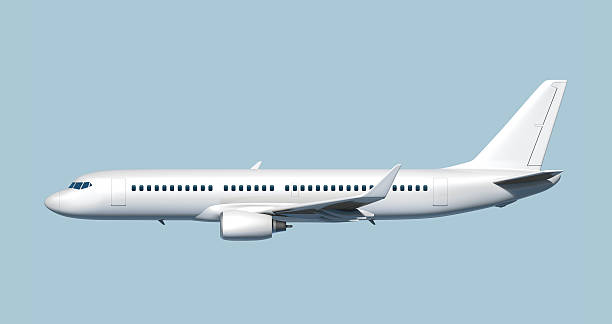The aviation industry in Nigeria is a vital component of the nation’s economy, facilitating trade, tourism, and connectivity across Africa and the world. Over the decades, it has experienced periods of turbulence—marked by financial struggles, safety concerns, and infrastructural challenges. Yet, amid these headwinds, the sector has also witnessed triumphs, with new policies, technological advancements, and increased investments helping to stabilize and modernize the industry.
A Historical Overview
Nigeria’s aviation industry traces its roots back to the colonial era, with the establishment of Nigeria Airways in 1958. Once a symbol of national pride, the airline operated domestically and internationally, connecting Nigeria to key destinations globally. However, by the late 1990s, mismanagement, corruption, and a lack of investment led to the collapse of Nigeria Airways, signaling a major setback for the industry. This collapse left a vacuum in the sector, with private airlines stepping in to fill the gap, though the journey has been anything but smooth.
Current Challenges: A Sector Facing Turbulence
Despite some progress, the Nigerian aviation industry is still grappling with significant challenges. Infrastructural deficiencies remain a critical issue, with many airports in need of modernization and expansion. While major hubs like Murtala Muhammed International Airport in Lagos and Nnamdi Azikiwe International Airport in Abuja have seen some upgrades, regional airports lag behind, limiting the potential for growth in domestic air travel.
Moreover, the high operational costs in the industry, driven by factors such as fluctuating fuel prices, foreign exchange constraints, and the devaluation of the naira, place significant pressure on airlines. Several carriers have folded over the years due to their inability to remain profitable, including notable names like Air Nigeria and Aero Contractors. These financial woes also affect aircraft maintenance, safety standards, and the ability of airlines to expand their fleets.
Another persistent problem is the regulatory environment. Although Nigeria has made efforts to align with global aviation standards, inconsistent policies, bureaucratic red tape, and inadequate oversight have led to inefficiencies and safety concerns. The Nigerian Civil Aviation Authority (NCAA) has had to work hard to regain global confidence in the industry after Nigeria was blacklisted by international bodies like the European Union in the past due to safety issues.
Triumphs: Rising Above the Challenges
Despite these obstacles, Nigeria’s aviation industry has experienced several notable successes in recent years. One of the key developments has been the increased involvement of private sector players, leading to a more competitive and dynamic market. Airlines like Air Peace, Arik Air, and Dana Air have played a crucial role in expanding domestic routes, while Air Peace has taken the lead in opening up international flights, offering services to destinations like Dubai and Johannesburg.
The Federal Government’s efforts to improve airport infrastructure have also begun to yield results. The construction of new terminals and the refurbishment of old ones are part of a broader push to position Nigeria as a hub for air travel in West Africa. The ongoing expansion of Lagos and Abuja airports, along with the introduction of private-public partnerships for airport management, signals a positive trend toward long-term sustainability.
In addition, the government’s ambition to establish a new national carrier, Nigeria Air, has reignited optimism. Though its launch has faced delays and skepticism, the project reflects the country’s desire to restore its aviation prestige and capitalize on the growing demand for air travel in Africa. If successful, Nigeria Air could further enhance the country’s aviation footprint.
Technological Advancements and Innovation
Nigeria’s aviation sector is also benefiting from technological advancements that are reshaping the global industry. Digital platforms for ticketing, improved air traffic management systems, and the adoption of global best practices in safety and service delivery have all contributed to better efficiency. The push for more seamless travel, through e-gates and automated check-ins at airports, is making the passenger experience smoother and more aligned with international standards.
Moreover, the industry is beginning to explore sustainability measures, with discussions around adopting greener technology to reduce carbon emissions. This is particularly relevant as global pressure mounts on the aviation sector to cut its environmental footprint.
Future Prospects: A Sector Ready to Take Off
Looking ahead, the future of Nigeria’s aviation industry appears promising, despite the challenges. Africa’s aviation market is expected to grow significantly in the coming decades, with Nigeria poised to be a major player due to its strategic location and large population. The African Continental Free Trade Area (AfCFTA) agreement presents new opportunities for increased intra-African trade and air connectivity, which could spur growth in the Nigerian market.
Additionally, with a growing middle class and the increasing demand for both domestic and international travel, the Nigerian aviation sector has enormous potential for expansion. The development of more regional airports, coupled with government incentives for private investors, could further open up underserved areas, driving economic growth and tourism.
The journey of Nigeria’s aviation industry has been one marked by both turbulence and triumph. From the collapse of its national airline to the rise of new players and the ongoing infrastructural improvements, the sector is navigating a path toward modernization and growth. While challenges such as operational costs, regulatory issues, and infrastructure deficits persist, the increasing role of the private sector, technological advancements, and government initiatives signal a brighter future.
As the global aviation landscape evolves, Nigeria must continue to adapt, innovate, and invest in its aviation industry to fully unlock its potential. With the right strategies in place, the country is well-positioned to become a leading aviation hub in Africa, ushering in a new era of triumph in the skies.









